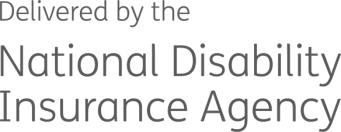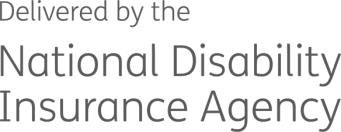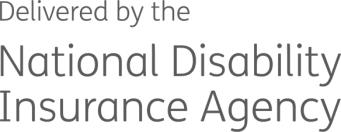
 Our reference:
Our reference: FOI 24/25-0759
GPO Box 700
Canberra ACT 2601
1800 800 110
13 February 2025
ndis.gov.au
Cat
Right to Know
By email: xxxxxxxxxxxxxxxxxxxxxxxxxx@xxxxxxxxxxx.xxx.xx
Dear Cat
Freedom of Information request — Notification of Decision
Thank you for your correspondence of 14 November 2024, in which you requested access to
documents held by the National Disability Insurance Agency (NDIA), under the
Freedom of
Information Act 1982 (FOI Act).
The purpose of this letter is to provide you with a decision on your request.
Scope of your request
You have requested access to:
“…the following documents (as listed in FOI 23/24-0142) for the purposes of the FOI
Act.
Document Title: "AAT Case Management Guide: Supportable Impairments"
(Published 10/09/2024)File Name: NDIA-AAT CM-GDE-001-FINAL
Document Title: "Case Management Guide: Supportable Impairments"
(Draft; please provide the most recent draft version.) File Name: NDIA-ARB-GDE-
001-DRAFT
Document Title: "Case Management Guide: Access for Chronic Health Conditions"
(Draft; please provide the most recent draft version.) File Name: NDIA-ARB-GDE-
007-DRAFT
Document Title: "Case Management Guide: Model Litigant Obligations”
(Draft; please provide the most recent draft version.) File Name: NDIA-ARB-GDE-
030-DRAFT
Please consider all information in the documents relevant to my request, including
first names and aliases of all staff or secondees, full names of SES staff, and any
tracked changes or comments on the identified drafts. I am happy for last names of
non-SES staff and contact details of all to be removed...”
1
Extension of time
On 26 November 2024, you agreed to a 30-day extension of time under section 15AA of the
FOI Act, making 13 January 2025 the new date to provide you with a decision on access.
I apologise that we did not meet this deadline. We have been experiencing processing
delays and were not able to provide you with our decision by the due date.
Consequently, we are deemed to have refused your application under section 15AC of the
FOI Act. Therefore, internal review of this decision is not an option. However, your right to
apply for an external review with the Office of the Australian Information Commissioner
remains protected. Please see
Attachment B for more information about your rights of
review.
Disclosure Log
Part of your request seeks access to the following:
“...Document Title: "Case Management Guide: Access for Chronic Health
Conditions"…”
On 15 January 2025, you were provided with a copy of this document, following the
finalisation and publication of a separate FOI decision for the same document on the NDIS
FOI disclosure Log. As such the remainder of this notice of decision will not include this
document.
Decision on access to documents
I am authorised to make decisions under section 23(1) of the FOI Act. My decision on the
remaining components of your request as listed below and the reasons for my decision are
set out below.
Document Title: "AAT Case Management Guide: Supportable Impairments"
(Published 10/09/2024)
File Name: NDIA-AAT CM-GDE-001-FINAL
Document Title: "Case Management Guide: Supportable Impairments"
(Draft; please provide the most recent draft version.) File Name: NDIA-ARB-GDE-
001-DRAFT
Document Title: "Case Management Guide: Model Litigant Obligations”
2
(Draft; please provide the most recent draft version.) File Name: NDIA-ARB-GDE-
030-DRAFT
I have identified 3 documents, which fall within the scope of your request.
These documents were identified by consulting with relevant staff from NDIA’s Legal
Practice and Capability Branch, who could be expected to be able to conduct searches of
NDIA’s systems and identify documents within the scope of this request.
I have decided to grant access to:
• 2 documents in full and
• one document in part.
In reaching my decision, I took the following into account:
• your correspondence outlining the scope of your request
• the nature and content of the documents falling within the scope of your request
• the FOI Act
• the FOI Guidelines published under section 93A of the FOI Act
• consultation with relevant NDIA staff
• factors relevant to my assessment of whether or not disclosure would be in the public
interest
• the NDIA’s operating environment and functions.
I note that your request also seeks access to ‘most recent draft version’ of the Case
Management Guides for Supportable Impairments and Model Litigant Obligations. The Legal
Practice and Capability Team has advised us that the documents which were in draft at the
time that we released a list of all Case Management Guides under a separate but related
FOI request (FOI 24/25-0142) have since been finalised and published. Therefore, the
documents provided for your FOI request are the most recent versions of these Guides.
Access to edited copies with exempt or irrelevant material deleted (section 22)
I have decided that Document 3 contains material that is exempt from disclosure under the
FOI Act.
In accordance with section 22 of the FOI Act, I have considered whether it is possible to
delete the exempt material from the documents and have concluded that it is reasonably
3
practicable to do so. Accordingly, I have prepared an edited copy of the document with the
exempt material removed.
Reasons for decision
Certain operations of agencies (section 47E(d))
Section 47E(d) of the FOI Act conditionally exempts a document if its disclosure would, or
could reasonably be expected to, have a substantial adverse effect on the proper and
efficient conduct of the operations of an agency.
Document 3 contains information relating to certain operations of the NDIA, specifically,
internal single points of contact for use only by NDIA staff in their work, for example,
managing complaints made against the Agency by members of the public.
Disclosing individual staff contact details may jeopardise the use of single points of contact
to receive feedback and complaints. I am satisfied that there is a reasonable likelihood of
aggrieved members of the public seeking to gain advantage over others by using internal
points of contact in place of the appropriate points of contact. I conclude that release of this
information could reasonably be expected to have an adverse effect on the proper and
efficient conduct of the operations of the Agency, namely the Agency’s ability to conduct its
operations in a timely and efficient way.
Accordingly, I find that disclosure of this information would or could reasonably be expected
to have a substantial adverse effect on the operations of the Agency and is therefore
conditionally exempt under section 47E(d) of the FOI Act.
Public interest considerations – section 47E(d)
Section 11A(5) of the FOI Act provides that access to a document covered by a conditional
exemption must be provided unless disclosure would be contrary to the public interest.
I have not considered any of the irrelevant factors as set out under section 11B(4) of the FOI
Act in making this decision.
In favour of disclosure, I have considered the factors outlined in section 11B(3) of the FOI
Act, and I have determined that disclosure of the relevant information in Document 3 would
promote the objects of the FOI Act by providing access to documents held by the
government.
4

Against disclosure, I consider that disclosure of the relevant information in Document 3,
would not promote the other objects of the FOI Act, such as informing any debate on a
matter of public importance, or promoting oversight of public expenditure.
While there is limited public interest in the disclosure of information conditionally exempt
under section 47E(d), of the FOI Act, the harm that would result from disclosure is that it
could reasonably be expected to prejudice the ability of the Agency to protect established
contact points and procedures of the Agency.
In summary, I am satisfied that the factors against disclosure of the information outweigh the
factors in favour of disclosure and that, on balance, it would be contrary to the public interest
to release this information to you. Accordingly, I have decided that the relevant information in
Document 3 is exempt under section 47E(d) of the FOI Act.
Release of documents
The documents for release, as referred to in the Schedule of Documents at
Attachment A,
are enclosed.
Rights of review
Your rights to seek a review of my decision, or lodge a complaint, are set out at
Attachment B.
Should you have any enquiries concerning this matter, please do not hesitate to contact me
by email at
xxx@xxxx.xxx.xx.
Yours sincerely
Ramya (RMO260)
Senior Freedom of Information Officer
Complaints Management & FOI Branch
General Counsel Division
5
 Attachment A
Schedule of Documents for FOI 24/25-0759
Documen
Page
Description
Access Decision
t number
number
Attachment A
Schedule of Documents for FOI 24/25-0759
Documen
Page
Description
Access Decision
t number
number
AAT Case Management Guide - Supportable Impairments
FULL ACCESS
1
1-3
Date: 10 September 2024
Case Management Guide - Supportable Impairments
FULL ACCESS
2
4-6
Date: 28 October 2024
Case Management Guide - Model Litigant Obligations
PARTIAL ACCESS
3
7-9
Date: 20 November 2024
Exemption claimed:
s47E(d) – certain operations of agencies
1
 Attachment B
Your review rights
Review by the Office of the Australian Information Commissioner
Attachment B
Your review rights
Review by the Office of the Australian Information Commissioner
The FOI Act gives you the right to apply to the Office of the Australian Information
Commissioner (OAIC) to seek a review of this decision.
If you wish to have the decision reviewed by the OAIC, you may apply for the review, in
writing, or by using the online merits review form available on the OAIC’s website at
www.oaic.gov.au, within 60 days of receipt of this letter.
Applications for review can be lodged with the OAIC in the following ways:
Online:
www.oaic.gov.au
Post:
GPO Box 5218, Sydney NSW 2001
Email:
xxxxxxxxx@xxxx.xxx.xx
Phone:
1300 363 992 (local call charge)
Complaints to the Office of the Australian Information Commissioner or the
Commonwealth Ombudsman
You may complain to either the Commonwealth Ombudsman or the OAIC about actions
taken by the NDIA in relation to your request. The Ombudsman will consult with the OAIC
before investigating a complaint about the handling of an FOI request.
Your complaint to the OAIC can be directed to the contact details identified above. Your
complaint to the Ombudsman can be directed to:
Phone:
1300 362 072 (local call charge)
Email:
xxxxxxxxx@xxxxxxxxx.xxx.xx
Your complaint should be in writing and should set out the grounds on which it is considered
that the actions taken in relation to the request should be investigated.
1




